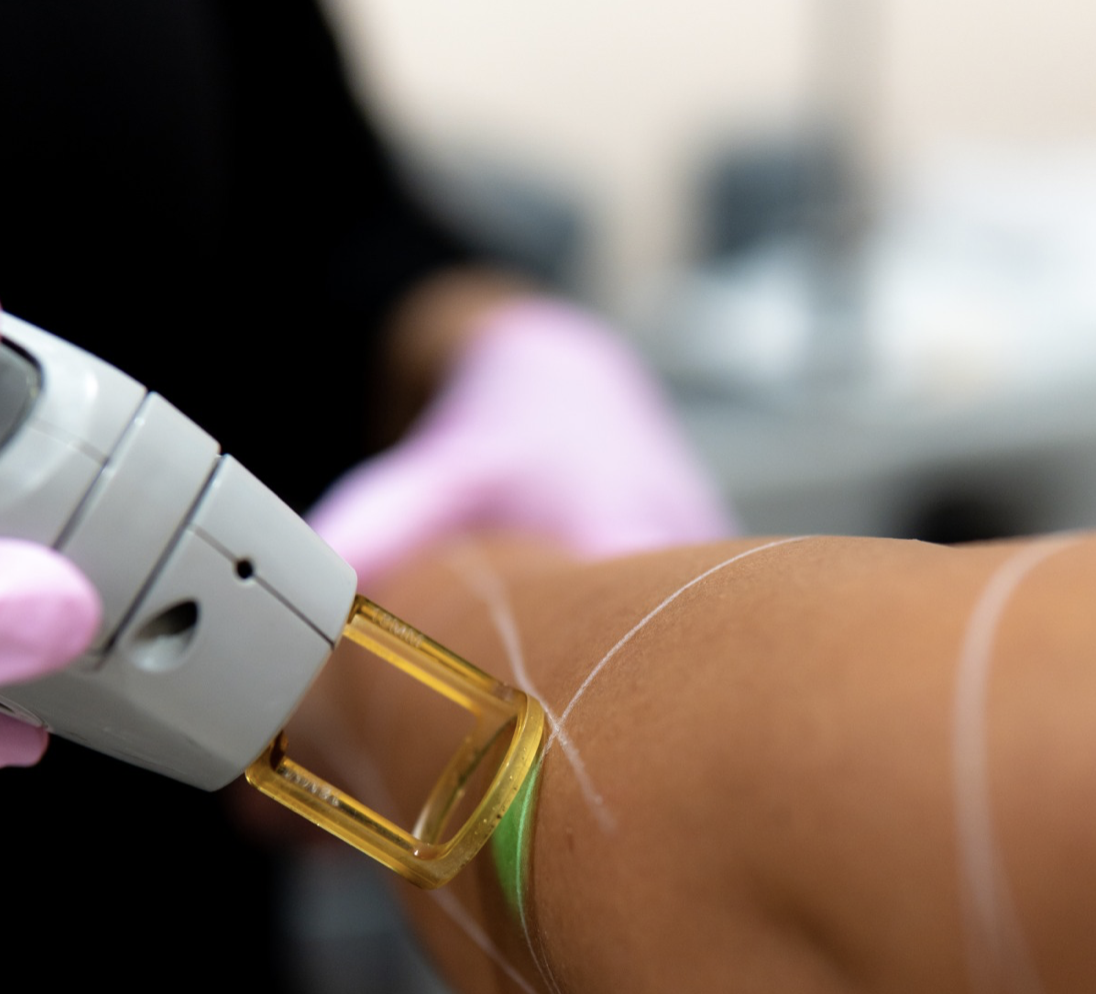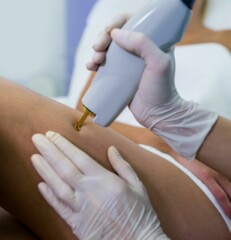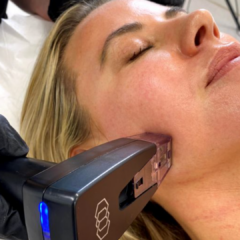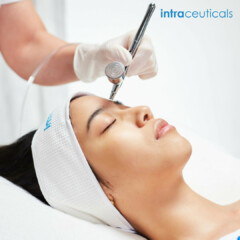Polycystic Ovary Syndrome (PCOS) affects millions of women worldwide, yet it often remains a misunderstood and under diagnosed condition. September PCOS Awareness Month[1], a crucial opportunity to educate, empower, and advocate for those with PCOS.
In this comprehensive guide, we’ll delve into the PCOS definition, the causes, symptoms, diagnosis, treatment options, and the importance of raising awareness.
The Importance of PCOS Awareness
September PCOS Awareness Month is pivotal in shedding light on this often-overlooked condition. Raising awareness has several essential benefits, such as:
Early Detection
Increased awareness can lead to earlier diagnosis and intervention, improving outcomes for PCOS patients.
Reducing Stigma
Education about PCOS helps reduce the stigma associated with its symptoms, particularly those related to fertility and appearance.
Support and Advocacy
September PCOS awareness fosters community and encourages advocacy for better healthcare and research funding.
Improved Treatment
Greater awareness can drive research into more effective treatments and therapies for PCOS.
What Is PCOS?
PCOS, short for Polycystic Ovary Syndrome, is a common hormonal disorder among women of reproductive age. It can manifest in various ways, including irregular periods, cysts on the ovaries, and hormonal imbalances. PCOS affects approximately one in ten women, making it a prevalent concern.
Symptoms of PCOS
Polycystic Ovary Syndrome (PCOS) is a common hormonal disorder that impacts people with ovaries, primarily in their reproductive years. It can present with a range of symptoms, and the severity and combination of symptoms can vary from person to person. Here are some common symptoms of PCOS:
Irregular Menstrual Periods or No Periods
Women with PCOS often have irregular, infrequent, or absent menstrual periods. This irregularity can make it difficult to predict when ovulation will occur.
Excessive Hair Growth (Hirsutism)
PCOS can lead to excessive facial and body hair growth, known as hirsutism. This hair growth is typically coarse and dark. You can get laser hair removal to help with excessive hair growth, which is excellent for dealing with unwanted hair and enables you to feel like yourself again.
Check out our blog on laser hair removal for hirsutism for further information.
Acne
PCOS may be associated with persistent acne and oily skin due to increased androgen (male hormone) levels.
Hair Thinning
Some individuals with PCOS experience thinning of the hair on their scalp, which can resemble male-pattern baldness.
Weight Gain
Many people with PCOS struggle with weight gain or obesity[2]. This can make it even more challenging to manage the condition.
Difficulty Losing Weight
Losing weight can be particularly challenging for PCOS patients due to insulin resistance, leading to increased fat storage.
Ovulatory Dysfunction
PCOS often disrupts the normal ovulation process, making it difficult for individuals to conceive. This can result in fertility issues.
Pelvic Pain
Some individuals with PCOS may experience pelvic pain, which cysts on the ovaries can cause.
Mood Changes
PCOS can be associated with mood swings, anxiety, and depression, possibly due to hormonal imbalances.
Sleep Problems
Sleep disturbances can be more common in individuals with PCOS, possibly due to weight gain and hormonal changes.
It’s important to note that not everyone with PCOS will experience all of these symptoms, and the severity can vary widely. PCOS can also increase the risk of long-term health issues such as diabetes, heart disease, and endometrial cancer. If you suspect you have PCOS or are experiencing any of these symptoms, it’s essential to consult a healthcare professional for proper diagnosis and management.
What Causes Polycystic Ovary Syndrome (PCOS)?
Polycystic ovary syndrome (PCOS) is a complex hormonal disorder that affects people with ovaries. Its exact cause is not fully understood, but it is believed to result from a combination of genetic, hormonal, and lifestyle factors. Here are some key factors thought to contribute to the development of PCOS:
Genetics
There appears to be a genetic component to PCOS, as it often runs in families. If a close female relative (such as a mother or sister) has PCOS, you may be at a higher risk of developing it.
Hormonal Imbalance
One of the primary features of PCOS is an imbalance in hormones, particularly elevated levels of androgens (male hormones) such as testosterone. This hormonal imbalance can disrupt the normal menstrual cycle and lead to various symptoms.
Insulin Resistance
Many individuals with PCOS also have insulin resistance, a condition where the body’s cells don’t respond effectively to insulin, leading to higher insulin levels in the blood. Insulin resistance can stimulate the ovaries to produce more androgens, further contributing to hormonal imbalances.
How is PCOS Diagnosed?
Your GP will inquire about your symptoms to eliminate the possibility of other potential causes and assess your blood pressure.
They will also arrange a series of hormone tests to determine whether the excessive hormone production is attributed to PCOS or another hormone-related condition. Additionally, you may require an ultrasound examination to ascertain whether you have elevated follicles within your ovaries, a characteristic of polycystic ovaries.
A blood test may also be necessary to gauge your hormone levels and screen for conditions such as diabetes or high cholesterol.
Diagnosis Criteria
According to the NHS[3], a diagnosis can usually be made if other rare causes of the same symptom have been ruled out and you meet at least 2 of the following criteria:
Scans show you have polycystic ovaries.
Blood tests show high levels of “male hormones,” such as testosterone.
You have irregular periods or infrequent periods or infrequent periods this indicates that your ovaries do not regularly release eggs (ovulate)
As only 2 of these need to be present to diagnose PCOS, you will not necessarily need to have an ultrasound scan before the condition can be confirmed.
Referral to a Specialist
If you’re diagnosed with PCOS, you may be treated by your GP or referred to a specialist, gynaecologist, or endocrinologist.
The GP or specialist will discuss the best possible ways to manage symptoms and recommend lifestyle changes and start you on any necessary medicine.
Polycystic Ovary Syndrome Treatments
The treatment for PCOS aims to manage its symptoms and reduce the long-term health risks associated with the condition. Here are some common treatments for PCOS:
Lifestyle Changes
The symptoms and overall risk of developing long-term health problems from PCOS can be improved by losing excess weight. The NHS states that a weight loss of 5% can lead to a significant improvement in PCOS.
Medications
Multiple medications are available to treat the different symptoms associated with PCOS. Here are some of the medicines that can be used to treat the symptoms:
Irregular or Absent Periods Medications
You may be recommended to take the contraceptive pill to induce regular periods, or periods may be induced using an intermittent course of progestogen tablets.
Taking the contraceptive pill to help with having regular periods will reduce the long-term risk of developing cancer of the womb lining associated with not having regular periods.
There are also hormonal methods of contraception, such as an intrauterine system (IUS), which will reduce the risk of cancer in the womb lining as it keeps the womb lining thin, but this may not cause periods.
Fertility Problems Medications
Clomifene may be the first medication recommended for women with PCOS who are trying to get pregnant. This medication encourages the monthly release of an egg from the ovaries.
If Clomifene is unsuccessful in encouraging ovulation, another alternative medication called metformin may be recommended.
Unwanted Hair Growth and Hair Loss
The combined oral contraceptive pill has typically been used to treat excessive hair growth (hirsutism) and hair loss (alopecia).
There is a cream called Eflornithine, which can be used to slow down the growth of unwanted facial hair. This cream does not remove hair or cure unwanted facial hair, so it can be used alongside a hair removal product.
There are medicines called anti-androgens which may be offered for excessive hair growth, which may include:
- Cyproterone acetate
- Spironolactone
- Flutamide
- Finasteride
For hair loss from the hair, a cream called minoxidil may be recommended for use on the scalp.
You will discuss the options with your doctor or specialist and find the treatment option that best suits you.
Suffering with Excessive Hair Growth?
At London Premier Laser Clinic, we have a team of experts in laser hair removal for excess hair growth. We will create a tailored treatment plan best suited to your condition, which is designed to give you optimal results.
Book a free consultation at one of our clinics to see how laser hair removal effectively treats excessive hair growth. If you have any further questions about our services or to arrange a consultation, please contact us online or call 0203 871 8218.
















